Egyptian fruits are a diverse and vibrant part of the country’s agricultural landscape, cultivated by its rich soil and favorable climate. They range from sweet and succulent varieties like dates and figs to juicy and refreshing options like oranges and melons.
Known for their quality and taste, these fruits are enjoyed both fresh and dried, and they play a significant role in local cuisine and traditional practices.
Whether cultivated in the fertile Nile Delta or the arid desert oases, Egyptian fruits offer a delightful array of flavors and textures, with some even used way back in ancient times or as a vegetable for culinary purposes.
12 Best Fruits in Egypt
These are 12 fruits coming from Egypt, offering a wide range of flavors, textures, and colors for you to uncover.
Banana
- Central African Republic
- Cyprus
- Egypt
- Berry
Banana is an elongated, curved fruit with a creamy texture and sweet flavor, encased in a peel of green to yellow as it ripens. In Egypt, bananas are widely grown and enjoyed for their convenient, natural packaging and versatile use.
The fruit’s smooth, soft interior is ideal for fresh consumption, blending into smoothies, or adding to desserts like cakes and puddings. Bananas in Egypt are noted for their sweetness and rich flavor, making them a popular snack and ingredient in various dishes.
Fig
- Aggregate Fruit
Fig is a small, pear-shaped fruit with a unique, sweet flavor and soft, chewy texture. In Egypt, figs are prized for their smooth skin, ranging from green to deep purple.
Each fig is filled with tiny seeds and a luscious, jam-like pulp, enjoyed fresh for its natural sweetness or dried for a more concentrated flavor. They play a significant role in Egyptian cuisine, often added to desserts, salads, and savory dishes.
Mango
- Haiti
- India
- Pakistan
- Philippines
- Drupe/stone Fruit
Mango is an oval or kidney-shaped fruit in Egypt with a vibrant yellow to red skin and a sweet, rich flavor. These sweet and sour fruits are juicy with deep orange flesh that is smooth and buttery in texture.
The fruit’s sweetness can vary from tart to exceptionally sweet, depending on the variety and ripeness. Egyptian mangoes are enjoyed fresh, sliced in salads, blended into smoothies, or used in culinary dishes from salsas to desserts.
Watermelon
- Turkmenistan
- Melon
Watermelon is a large, round, or oval fruit in Egypt with a thick green rind and sweet, juicy red flesh. In Egypt, watermelons are a popular summer fruit, valued for their refreshing flavor and high water content, which makes them perfect for combating the heat.
The fruit’s flesh is crisp and hydrating, dotted with black seeds, and offers a subtly sweet taste. Watermelons are enjoyed fresh by Egyptians, often sliced or cubed, and served as a cooling snack or dessert.
They are also used in salads and beverages, providing a delightful and nutritious addition to various dishes during the hot summer months.
Grape
- Spain
- Berry
Grapes, in Egypt, are small, round, or oval fruits that grow in clusters with smooth skin. Available in colors like green, red, or purple, Egyptians highly cherished grapes for their sweet and juicy flavor, often with a hint of tartness.
The flesh is tender and succulent, making them a refreshing snack. People also feature grapes in various traditional dishes and desserts.
Known for their delightful taste, grapes are a staple in Egyptian markets.
Orange
- Hungary
- Nepal
- Citrus
Orange is a round citrus fruit in Egypt with a vibrant orange peel and juicy, segmented flesh. The country cultivates oranges widely for their sweet and slightly tangy flavor.
Furthermore, the fruit’s texture is firm yet juicy, making it a popular choice for fresh eating, juicing, and cooking. They are also used in various dishes and desserts, adding a zesty flavor.
Renowned for their quality, Egyptian oranges are a significant export, celebrated for their sweetness and vibrant color.
Pumpkin
- Multiple Fruit
Pumpkin is a large, round, or oval squash with a sweet, earthy flavor and a thick, ribbed orange skin. Egyptian pumpkins are commonly grown and used in both savory and sweet dishes.
The flesh is dense and fibrous, becoming tender when cooked in soups, stews, and casseroles, where its mildly sweet taste shines through.
Additionally, the seeds are roasted and enjoyed as a snack, providing a crunchy texture and nutty flavor.
Date
- Algeria
- Saudi Arabia
- United Arab Emirates
- Drupe/stone Fruit
Date is a notable Egyptian fruit with a small, oval shape featuring glossy, wrinkled skin of golden brown to dark brown. These little sweet dates are highly prized for their rich, caramel-like sweetness and chewy texture.
The fruit contains a single seed and is often enjoyed fresh or dried. Dates are a staple in Egyptian cuisine, commonly consumed as a snack or used in desserts, breads, and savory dishes as a sweetener.
During Ramadan, they are traditionally eaten to break the fast. Furthermore, Egyptian dates are known internationally for their superior quality and flavor.
Persimmon
- Pome Fruit
Persimmon is a vibrant orange fruit in Egypt, typically shaped like a flattened sphere. These soft fruits have an intensely sweet flavor, almost like honey, when fully ripe.
Plus, the fruit has a smooth, glossy exterior and an incredibly soft, jelly-like texture when mature. Egyptian persimmons are often enjoyed fresh as a dessert or snack and are easily found at local markets.
Tangerine
- Citrus
Tangerine is an Egyptian small, round citrus fruit with a bright orange, easy-to-peel skin, and a sweet, tangy flavor. These bright citrus fruits are highly favored for their juicy and succulent segments, which are often seedless.
The fruit is tender and refreshing, making it a popular choice for snacking. Additionally, their aromatic zest is often used in cooking and baking to enhance the flavor of various dishes.
Tangerines are widely available in Egyptian markets, especially during the winter season, providing a delicious and healthy treat.
Tomato
- Berry
Tomato is known for its plump round shape, smooth skin, and juicy, tangy flavor. These common red fruits are a staple in many Egyptian dishes, appreciated for their vibrant color and versatile use.
The fruit’s flesh is soft and succulent, containing numerous small seeds. In Egyptian cuisine, tomatoes are extensively used in salads, sauces, stews, and soups, adding a fresh and zesty element to the dishes.
Prickly Pear
- Israel
- Berry
Prickly pear is a round-shaped fruit with vibrant green, yellow, or red skin covered in small spines in Egypt. These spiny pears are popular for their sweet, subtly tangy flavor and juicy texture.
The fruit’s flesh is dotted with small, edible seeds and offers a refreshing taste similar to a blend of watermelon and pear. Egyptians often enjoy prickly pears fresh, peeled, and eaten as a snack, especially during the summer.
The fruit is also used in making juices, jams, and desserts. Known locally as “sabra,” prickly pears are widely sold by street vendors and are a beloved seasonal treat in Egyptian markets.
What Are Ancient Fruits in Egypt?
Egypt has cultivated a variety of fruits that have been cherished since ancient times. Here are some of the notable ancient fruits from Egypt:

Fig
A staple in ancient Egyptian diets, figs were prized for their sweet flavor and were often dried for preservation. They were commonly offered to gods and placed in tombs as food for the afterlife.
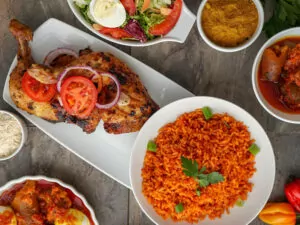
Date
Known for their rich, caramel-like sweetness, dates were a significant fruit in ancient Egypt. They were consumed fresh or dried and used in a variety of dishes and beverages. Dates were also considered a symbol of fertility and prosperity.

Grape
Grapes were cultivated extensively in ancient Egypt for both consumption and wine production. Wine made from grapes was enjoyed by the elite and used in religious ceremonies.
Aside from raw consumption, some Egyptian fruits even serve as vegetables to mix with a diverse range of ingredients.
What Egyptian Fruits Are Used as Vegetables?
In Egypt, various culinary traditions commonly use several fruits as vegetables:

Tomatoes
These popular fruits of Africa are a prime example, widely utilized in salads, sauces, stews, and soups for their juicy, tangy flavor and vibrant color.

Pumpkins
These squash are also featured in savory dishes, including soups, stews, and casseroles, where their dense, fibrous flesh provides a mildly sweet and earthy flavor.

Prickly Pear
The spiny fruit is used similarly to vegetables in salad creations, providing a light sweetness and a soft texture.
These fruits are ideal for making Egyptian staples, contributing rich flavors and nutritional value to many traditional recipes.
So, which fruits are your favorite to munch on in Egypt? Drop your favorite Egyptian fruits in the comment section and share your interesting experience in handling them.||Make sure to spread these Egyptian fruits with people around you, allowing them to uncover new fruity options.


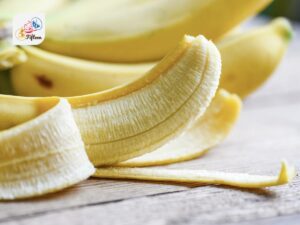
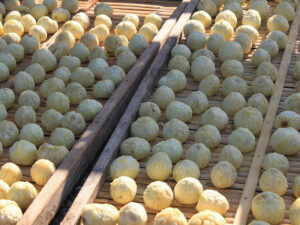
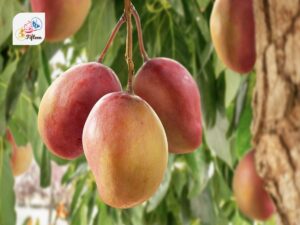
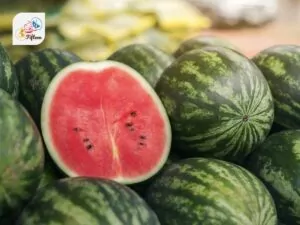
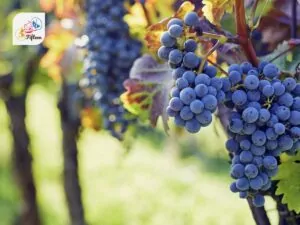
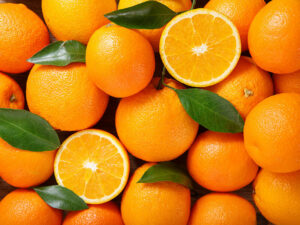
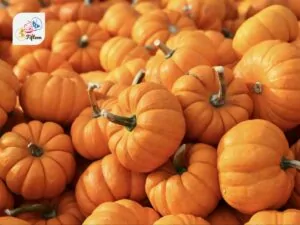
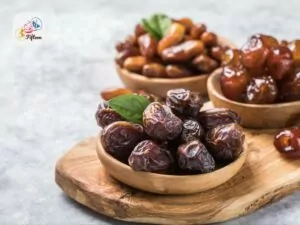
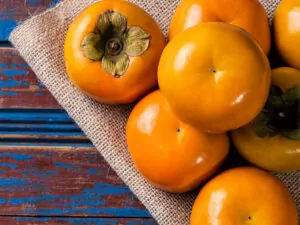
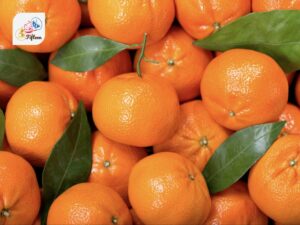
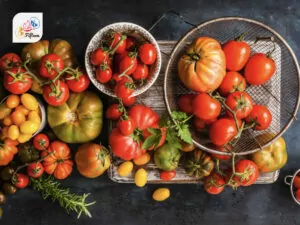
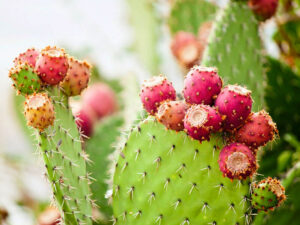
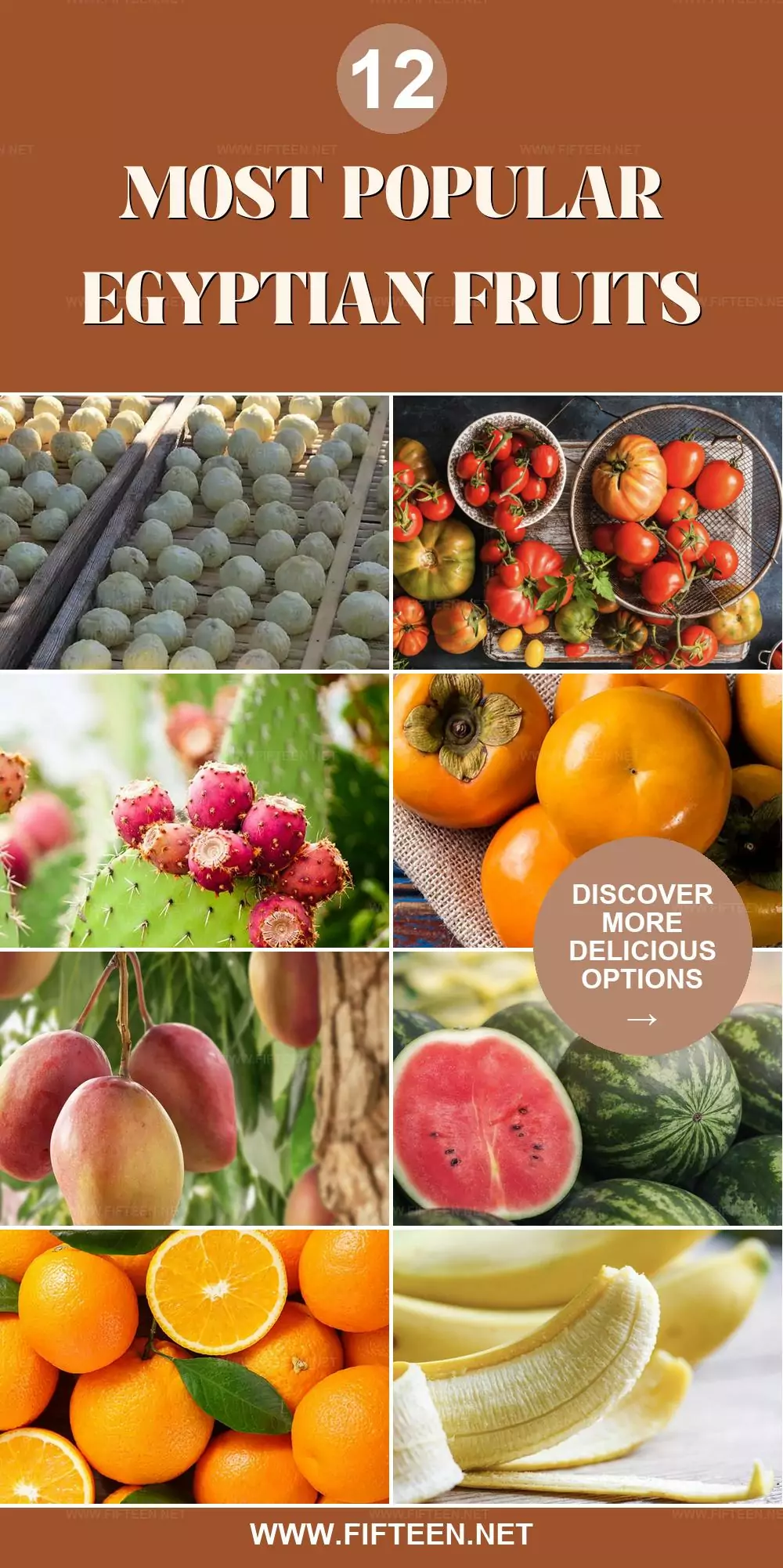
Jamie Scott
Editor in Chief, Senior Content Writer
Expertise
Home Cooking, Meal Planning, Recipe Development, Baking and Pastry, Food Editor, Cooking-video Maker, Western Food Evaluation Expert
Education
Le Cordon Bleu College of Culinary Arts
Local Community College, New York, NY
Jamie Scott is a skilled culinary expert and content creator specializing in Western cuisine. With over 15 years in the culinary field and formal training from Le Cordon Bleu, Paris, Jamie deeply understands how to blend nutrition with delicious flavors. His passion for cooking matches his commitment to making healthy eating accessible and enjoyable.
On Fifteen.net, Jamie brings a fresh perspective to classic dishes and beverages, offering readers insightful recipes, cooking tips, and a fresh view on meal planning that emphasizes taste, health, and simplicity.